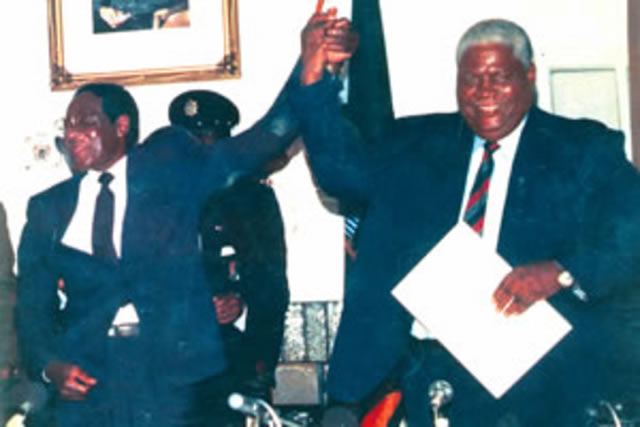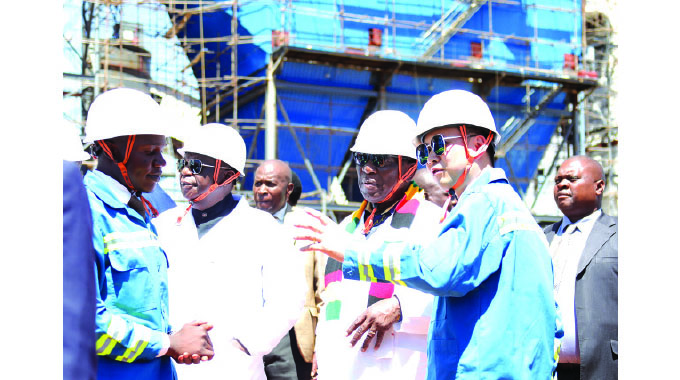Critical thinking the essence of true leadership

Dr Sikhanyiso Duke Ndlovu Special Correspondent
IN any society there are men and women of critical thinking, reason, and principles. Some are of expedience, shallow values, and instant gratification personal aggrandisement or gormandisers. Principles come from reason and reason comes from critical thinking. Critical thinking is important. Internationally, there is a National Council for Excellence in Critical Thinking. Richard Panul, author of several books on critical thinking, became director of the Centre for Critical Thinking and chair of the National Council for Excellence in Critical Thinking. He gave lectures at various universities in Puerto Rico, Costa Rica and Amsterdam as well as Harvard as indicated in his book “Critical Thinking”.
It is correct to say some rulers and leaders in politics, business or religion-based religious philosophy and theologism are principled critical thinkers. Others are noisy empty vessels without principles. There are men and women of passion who usually act on expedience and emotion.
They act for their immediate needs, personal social fulfilment and personal aggrandisement. In politics such people can easily turn to selloutism at the expense of national interest and sacrifice for the people. Kwame Nkrumah in the book “Axioms of Kwame Nkrumah” stressed the importance of principles in political leadership rather than leadership based on expedience. This requires critical thinking reason and political consciousness.
Critical thinking and principles have guided true political leadership as shown by Cde Robert Mugabe and Dr Joshua Nkomo. Having worked and been detained with Dr Nkomo for several years and in the liberation struggle and having worked and known Cde Mugabe since the NDP days of 1960 I talk about their qualities authoritat- ively.
Dr Joshua Nkomo and Cde Mugabe guided the nation to liberation selflessly and running the Government of the people of Zimbabwe by the people of Zimbabwe for the people of Zimbabwe.
In some meetings or Politburo most of the time President Mugabe remains quiet and listening while some members speak and others even passionately shout at each other or lose tempers which no one can find for them.
In the end he summarises and concludes with a solution or way forward. A critical thinker does not shout or sing and only make empty slogans without thinking when important decisions are to be taken.
Wisdom and knowledge come from critical thinking recollected in tranquillity. A thinker is a living person, in Latin it is said that “corgito ergo sum”, “I think there for I am or I exist”.
Critical thinking is an existential philosophy.
The issue of principled leadership is critical at this time of political external and internal threats as we prepare for our elective congress. We have some people aspiring for various leadership positions. Men and women of reason and those of passion and expedience jostle for positions. In IsiNdebele we say “uzinuke amakhwapha”- “kuzviwongorora”.
A principled critical rational person understands the political dynamics involved the need for personal sacrifice in serving the people, the need for a dependable and reliable calibre to work with all people and to protect the nation. When the security of the nation is at stake and an enemy dangles a carrot is he or she ready to throw it away. Does that leader have leadership principles with the heart of a lion and tenacity of an elephant?
We enjoy a free nation borne out of the sweat and blood of our comrades who are buried at Nampundu Freedom Camp, Mukushi, Mboroma, Chimoio, and Nyadzonia and at our borders with Zambia and Mozambique and within Zimbabwe and man and women in Zimbabwe who supported the fighters.
Is the aspiring leadership committed to the principle of unity not only between the two former political Parties PF-Zapu and Zanu-PF but also among all the people of Zimbabwe to maintain peace, development and prosperity of our people?
Let us have critical thinking, reason and principles be the cornerstone of our political leaderships.
Dr Sikhanyiso Duke Ndlovu ( Dip. Social Work, BA Sociology, Master of Public Administration, and Doctor of Education (Ed.D) 1976) is a veteran nationalist and educationist, and former Deputy Minister Higher and Tertiary Education, former Minister of information and Publicity. He is the incumbent National Secretary for Education in the Politburo.






Comments